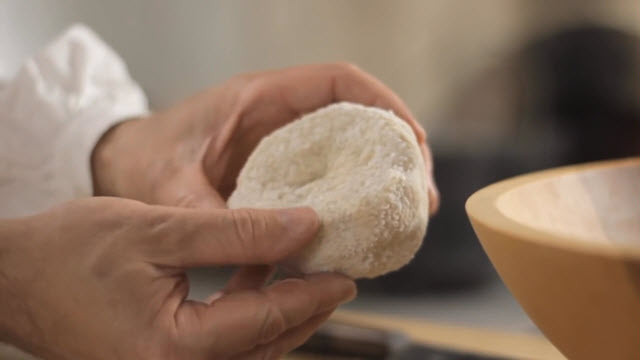Leaven, or the absence of it, becomes prominent at the time of the Passover and Exodus. The children of Israel were commanded to rid their homes of all leaven that had been cultured in Egypt. Then, for the next seven days, they would celebrate the Feast of Unleavened Bread. Only after this could the children of Israel start a new batch of leaven (or sourdough).
Throughout Scripture, leaven is a principle of growth. It can either be good or bad. There are times, such as in Egypt, that the leaven represents a principle of sinful growth. Leaven, in this case, is something sinful in a life or a culture that has been cultivated. Jesus tells his disciples to “beware of the leaven of the Pharisees and the leaven of Herod.” (Mark 8.15) The disciples, like the children of Israel, were to cut off and avoid the sinful leaven.
Leaven also speaks of something good that needs to be cultivated. Jesus says that “the kingdom of heaven is like leaven, which a woman took and hid in three measures of meal till it was all leavened.” (Matt. 13:33) The kingdom, though small, will eventually permeate the entire lump of dough that is the world. Righteousness is a leavening agent as well. As it is cultivated, it grows until the whole lump of dough is leavened.
We are all leavened as individuals and societies. We are maturing either in sin or in righteousness. We are cutting off one leaven and cultivating another. Whichever one we cultivate will eventually take over our lives.
This is something to which we must give diligent attention on a daily basis. A little leaven leavens the whole lump. If we are not careful in dealing with sins regularly, cutting off the old leaven through confession and repentance, the leaven begins to take hold in our lives and churches. A little leaven of discontentment not cut off through thanksgiving begins to leaven your whole view of God and the world around you. One day you wake up and realize that your whole life is characterized by grumbling and complaining. Nothing is right. A little leaven of unforgiveness grows so that you become a bitter person, full of bile.
But this also works in society as well. Recently, the State of New York passed a law legalizing the murder of a full-term baby. This, of course, is an abomination and, understandably provoked great outrage across the country. But the legalization of the murder of children didn’t recently pop up out of thin air. The attitude and philosophies that provide the foundation for this were laid many years ago, even previous to 1973. This leaven not only affected our society in general but also the church. The leaven of pleasure divorced from responsibility was introduced in small doses. That pleasure ranged from the act of sex itself to the pleasure of having a career or free time at the expense of having a family. Children get in the way of what I want to do and have, so they must be avoided.
Once this leaven was introduced and not cut off in its infancy, it began to grow. What we see in New York now is the maturity of the leaven of disdain for fruitfulness that accepts responsibility.
Christians are outraged at the murder of children, and rightly so. But, in a broad sense, we have helped in the leaven that now infects our country by generally adopting the same “leaven” that the world has let grow practically unchecked. That must be recognized and, where it exists in our churches, must be cut off.
Leaven works slowly but surely. Little compromises not put to death grow over time. Little acts of righteous discipline done faithfully also grow over time. Things may not look like they are changing in either case, but they are. Somewhere in the future, you will see what you have cultivated by what characterizes your life. Be diligent to cut off the leaven of sin and cultivate the leaven of righteousness.
















